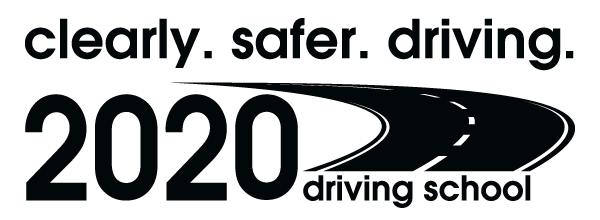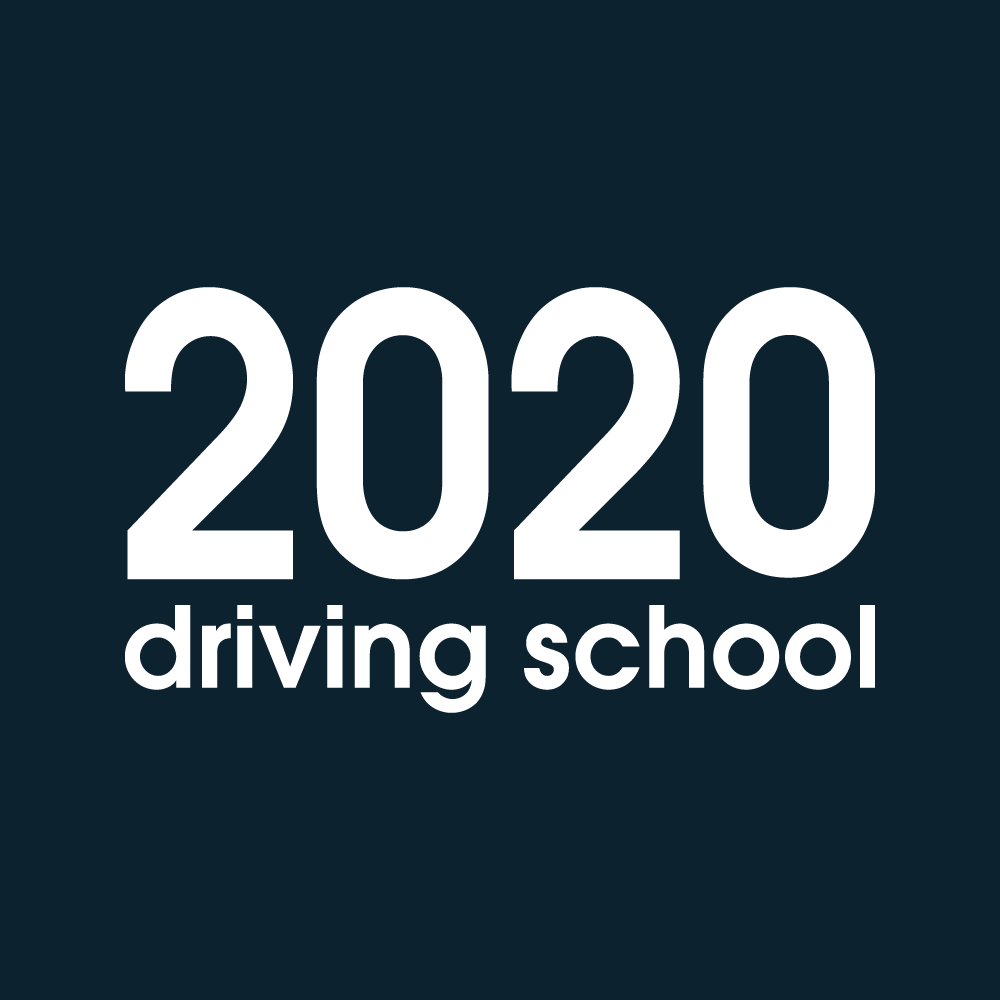
The walk back to your car after failing your driving test might be one of the longest walks you’ll ever take. Your phone buzzes with a text from your parent asking “How did it go?” and you realize you have to give them disappointing news.
While you might not realize it, what happens in your head after you fail your driving test matters just as much as what happens on paper. The fact is that psychological impact of failing greatly affects your next attempt.
At 2020 Driving School, more than just working with students who need to retake their test, we help them rebuild their confidence and change their mindset about what it means to fail. How you recover from failure often determines whether you’ll succeed on your next attempt.
The Hidden Psychology of Driving Test Failure
Most articles about failing your driving test focus on practical steps like waiting, practicing more, and then retaking the test. But research from the American Automobile Association shows that 40% of first-time test takers don’t pass, and many develop what psychologists call “test anxiety conditioning.”
What happens if you fail your driving test isn’t just about scheduling another appointment. It’s about your brain creating negative associations with testing situations. Students who fail once often perform worse on their second attempt, not because their driving got worse, but because their anxiety increased.
The Virginia DMV sees this pattern constantly where students who drove perfectly during lessons suddenly make basic mistakes during their retest because they’re fighting two battles: the actual test and their own mental state.
Why Your Mindset Matters More Than You Think?
Driving instructors rarely discuss how many times can you fail your drivers test depends more on your psychological state than Virginia policies.
A study published in the Journal of Safety Research found that students who frame their first failure as “learning information” rather than “personal defeat” are 60% more likely to pass on their second attempt.
The students who struggle most aren’t necessarily the worst drivers as they’re the ones who let failure define their identity rather than inform their preparation.
The Three-Failure Phenomenon
In Virginia, after three unsuccessful attempts, additional training is required. Students who reach this point often have a completely different relationship with failure by then.
Knowledge Test (Three Failures): Students must complete a 40-hour classroom course. The students who succeed after this aren’t just better informed, they’ve learned to approach testing differently.
Road Test (Three Failures): Students need additional behind-the-wheel training. The most successful students use this time to rebuild their driving identity and not just their skills.
At 2020 Driving School, our Failed Three Times Programs address both skill gaps and mindset issues. Our classroom instruction and behind-the-wheel training focus on building confidence alongside competence.
The Confidence Reconstruction Process
Most driving schools treat failed test students like they have skill deficits. We’ve learned that many have confidence deficits instead.
Weeks 1-2: Process the failure without immediately jumping into practice. Pushing too hard too fast often reinforces anxiety patterns.
Weeks 3-4: Address driving issues in a low-pressure environment that rebuilds positive associations.
Weeks 5-6: Gradually introduce testing conditions which helps students develop coping strategies for evaluation anxiety.
What Really Happens When You Fail Multiple Times?
How many times can you fail your drivers test before it becomes a pattern? Research from the Insurance Institute for Highway Safety shows that students who fail twice might not only be dealing with skill issues but they’re battling learned helplessness.
First Failure: Usually skill-based or circumstantial Second Failure: Often anxiety-driven, even if skills improved Third Failure: Typically involves both skill and psychological components
This is why Virginia’s requirement for additional training after three failures is psychologically sound. It forces a complete reset of the learning process.
The Family Dynamic Nobody Talks About
What happens if you fail your driving test affects your entire family. Parents who were excited about gaining freedom suddenly face extended chauffeur duty. This family pressure often makes subsequent attempts more stressful.
Managing Family Expectations:
- Set realistic timelines for retry attempts
- Discuss the emotional impact openly
- Consider professional help to reduce family pressure
The Peer Pressure Factor
Social media makes failing your driving test more painful than it used to be. Students see friends posting photos with their new licenses while they’re still studying for their retest.
Strategies for Managing Social Pressure:
- Remember that 40% of people don’t pass on their first try
- Focus on your own timeline, not others’
- Consider taking a social media break during retesting preparation
Professional vs. Family Preparation
Students who fail their driving test often double down on practice with family members. But family practice after a failure can sometimes reinforce the same patterns that caused the initial failure.
When to Consider Professional Help:
- After your first failure if it involved safety issues
- After your second failure regardless of the cause
- When family practice sessions become tense
Our Private Lessons starting at $85/hour focus specifically on rebuilding confidence alongside addressing skill gaps. As a Virginia DMV-approved driving school (Permit #1504005425), we understand both the technical and psychological aspects of test preparation.
The Retesting Strategy That Actually Works
Most students approach their retest by practicing the same way they did before but this rarely works as it doesn’t address the psychological component of failure.
Effective Retesting Preparation:
- Mindset Work: Address the emotional impact of failure before focusing on skills
- Pressure Training: Practice under simulated test conditions to build stress tolerance
- Mistake Recovery: Learn how to bounce back from errors during the test
- Success Visualization: Develop positive mental rehearsal techniques
The Success Statistics Nobody Shares
According to the National Highway Traffic Safety Administration, 85% of students who fail their driving test initially do pass within three attempts. The students who succeed fastest:
- View failure as information, not identity
- Seek help after recognizing patterns
- Address anxiety alongside skill development
- Rebuild confidence systematically
The Unexpected Benefits of Failing
Students who fail their driving test initially often become better drivers long-term than those who pass immediately. The additional preparation time and increased awareness creates more thoughtful, careful drivers.
Our Behind-the-Wheel Training program treats failed test students as having valuable experience and not just deficits.
Moving Forward with Purpose
Failing your driving test provides information about your readiness that passing wouldn’t give you. Students who use this information effectively often develop stronger driving skills than those who never face this challenge.
2020 Driving School serves Fredericksburg, Stafford, Spotsylvania, King George, Culpeper, Orange, and surrounding areas. Our main office at 46 Joseph Mills Dr, Fredericksburg, VA 22408 is open seven days a week.
Hours: Monday-Friday 8:00 AM – 7:00 PM, weekends 8:00 AM – 5:00 PM. Contact: 540-841-6327 or visit website.
Your driving license isn’t just about transportation. It’s about overcoming challenges and building resilience!




